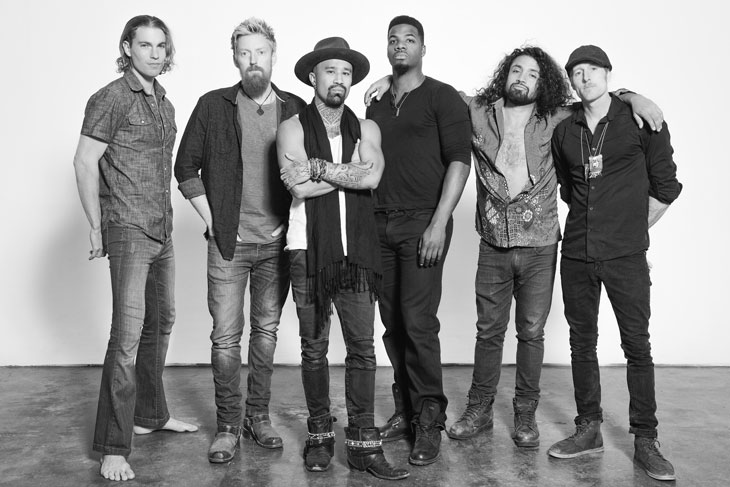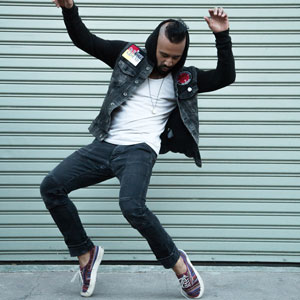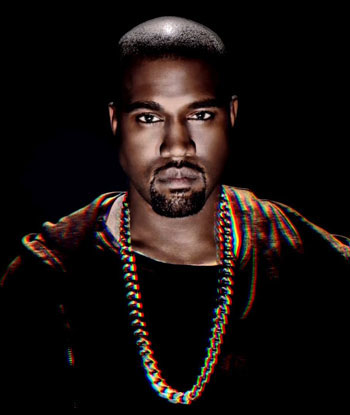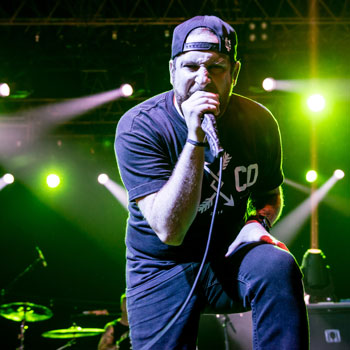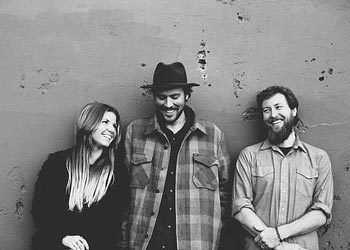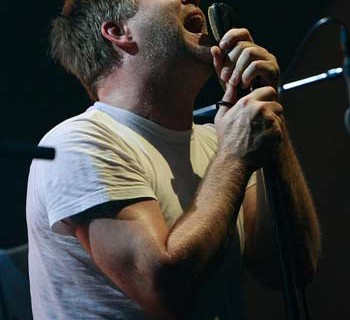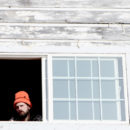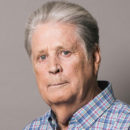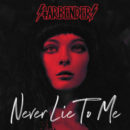Nahko Brings Medicine to the People
Not shying away from his Native American heritage, the music of Nahko and Medicine for the People (led by Nahko Bear) speaks to a spiritual vibration that resonates with audiences from Bali to Hawaii.
The songs carry strong choruses that become mantras. When echoed, the powerful phrases become anchors, creating a beautiful ripple. In the song “Black as Night,” the lyrics take a sonic spin: “I believe in good things coming, coming, come in.” In “Aloha Ke Akua,” the repetition of the song’s title—meaning “breath of life”—becomes a restorative melody that pulls from Hawaiian wisdom.
Two new music videos have been released prior to the June 10 launch of the group’s third album, Hoka. Both the videos and the current tour performances give fans a taste as to the band’s new configuration, including the addition of electric violinist Tim Snider and Patricio "Pato" Zuñiga Labarca on bass and kora. One track on the album, the story-song “San Quentin,” tells the powerful tale of Nahko’s trip to San Quentin State Prison to meet his father’s murderer.
“San Quentin,” tells the powerful tale of Nahko’s trip to San Quentin State Prison to meet his father’s murderer.
The band kicked off its tour in Asheville, N.C. The outdoor show was played under a big Scorpio moon that Nahko called out for instigating the repeated loss of electricity from the earlier rainstorms. Making magic out of mayhem, the audience became an acapella orchestra for a rendition of Aloha Ke Akua. Joining the band on stage for the last few songs was special guest Leah Song of Rising Appalachia, who also appears on the last track of the new album.
Although the band’s new configuration pushes the sound in new directions, causing waves in the tribe of fans, the evolution holds the thread of continuity from previous releases. In fact, many of the song segments have lyrics that have shown up in jams for several years.
In an interview with California Roots, Nahko shares some advice for aspiring singer/songwriters while also giving some insight into his own music making practices. He says:
As poets we tend to overthink a lot and we draft and redraft and consider what we said because we don’t want to say the same thing again, and we want to be inspired by ourselves. We want to listen to ourselves and go, “yes, I do believe that, and I believe that’s the best way of saying that.”
And then there’s also discipline. It’s giving time every day to ingesting words, ingesting music, and then practicing it. Taking time to listen to music, taking time to listen to poetry, reading, educating yourself on the vast vocabulary that we are capable of accessing. And then firing into it, and working on writing something, or journaling, or writing your dreams down, or whatever it is. Practicing it.
Discipline and letting go of the fear of what actually comes out of your mouth, is huge.

